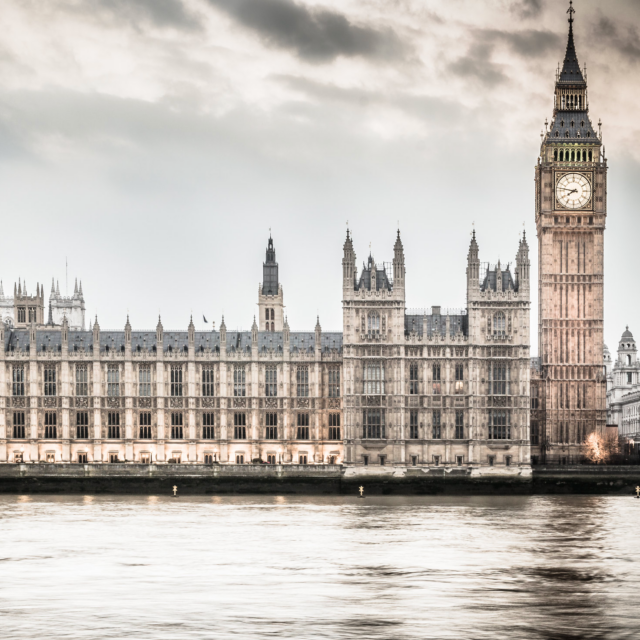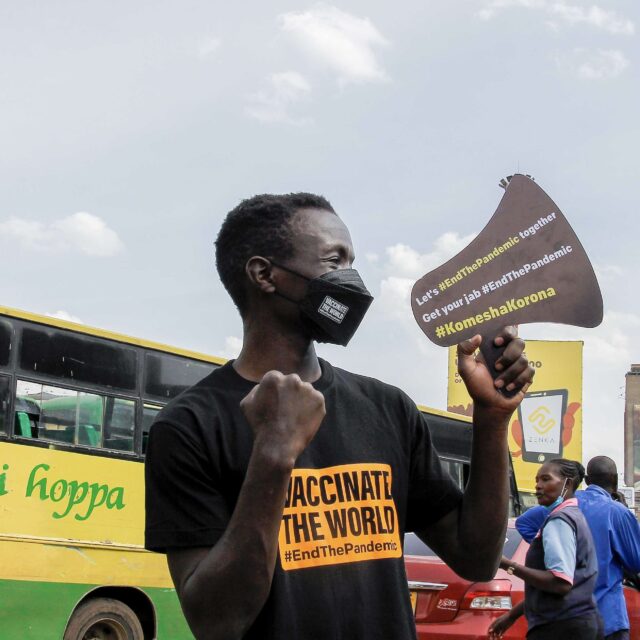Today, we take a look at candidates Liz Truss and Rishi Sunak‘s political priorities, as featured in their campaigns, and highlight gaps related to ONE‘s areas of interest and more. The resignation of Boris Johnson as the prime minister caused chaos within the government and the parliament, delaying, among other agenda items, the discussion over energy bills caps.
The current hustings between Truss and Sunak are aimed at allowing the members of the Conservative Party to vote for the new prime minister, who will be mandated to head the Cabinet until the next elections in 2024. With the last hustings taking place this week, here‘s a look at the recurring arguments presented by the two candidates from a perspective that has been left aside in the debate: young minority activists.
Representing the wider population
The next general elections are a crucial part of the selection of the new prime minister, as highlighted by Truss and Sunak themselves. Indeed, during the first round of hustings in Leeds on July 28, Sunak said,
“We are gonna have to appeal to swing voters in every part of our country. […] I am the candidate that gives our party the best opportunity to secure that victory and ensure that the Labour Party and Keir Starmer never walk through the door of No. 10, Downing Street.”
Truss advanced similar concepts on the same occasion by saying,
“We need to win, and, my friends, we can win against Keir Starmer who is a patronizing plastic patriot. He is beatable, but he is only beatable if we deliver.”
However, despite this, neither of the candidates seem to show attention to this aspect of how electoral processes work. To “secure that victory” in the words of Sunak and “deliver” in the words of Truss, they should pursue and adopt policies that reflect, or at least listen to, the requests of the wider population, as well as representing the UK to the highest standard.
Addressing international aid
Following a 1970 UN resolution, the international community agreed to meet the 0.7% target gross national product towards international aid. This was changed to the gross national income in 1993. In 2013, the UK not only met this target, but established a statutory duty for the government to meet it. Truss and Sunak were both part of the government when this was downsized to 0.5%. While this aspect of the policy agenda of the future prime minister remains unspoken, the aid budget cut was not taken positively, even by some members of the Conservative Party. During the discussion over the aid budget cut in the House of Commons in July 2021, Conservative MP Andrew Mitchell highlighted:
“A vote for the government tonight is a vote to end, in my submission, our 0.7 commitment. […] It is a trap for the unwary and a tribute to the chancellor of the exchequer silver tongue. […] We should not be breaking our promise in this way, we should certainly not be seeking to balance the books on the backs of the poorest people in the world. […] It‘s a tiny figure and it‘s the only cut – the only cut – that he has announced. It will have an enormous impact on our role in the world and above all, on the huge number of people who will be very severely damaged, maimed, often blinded, and indeed die as a result of these cuts.”
While this may look like a story of the past, the position of the new prime minister on international aid is incredibly relevant now, as the government has still to announce its pledge to the Global Fund to Fight AIDS, Tuberculosis, and Malaria.
Creating a concrete green plan
With the UK having experienced record high temperatures this summer and with the prediction from scientists that future summers could be even hotter, the government must produce a concrete green plan. Recently two news presenters downplayed the urgent call of a scientist to take this heatwave seriously, by saying that it is finally nice to have warm weather in the UK. It seems like young people are currently living the real-life version of “Don‘t Look Up,” where we continuously scream “a climate catastrophe is near!” and politicians and pundits around us keep telling us to calm down and simply recycle and enjoy the warm weather.
That‘s why we want policies that aim to safeguard and protect the environment and mitigate climate change, and not promote greenwashing policies that only appear to tackle the climate crisis. Unfortunately, Western governments have a long track record of talking the talk and not walking the walk when it comes to implementing concrete plans to address the climate crisis, amongst other things.
It appears that both prime minister candidates are not interested in sharing their plans to mitigate the effects of climate change, as seen during the debate on 26 July, where Truss and Sunak addressed climate change for less than five minutes, which included Sunak highlighting the importance of recycling.
Addressing migration
We can possibly get a sense of what the line of the next prime minister will be by looking at which agenda points received more clarity and which are still vague. A point that seems quite clear in both Truss‘ and Sunak‘s statements is migration, specifically the Rwanda policy, which is designed to send asylum seekers to Rwanda. Both candidates support and are willing to enforce it further.
As part of the pre-hustings speeches, Sunak stated:
“I‘ve set out a bold and radical plan to finally get to grips with illegal migration. Because for too long, all of us have been watching on our TV screens scenes that are simply unacceptable of people coming here illegally. […] Now with my plan, under my leadership, we will finally get a grip of that situation, stop the boats, restore trust, and take back control of our borders.”
While this line of argument completely ignores the status of several migrants, such as refugees, linked to a responsibility to protect under international law, Truss‘ statement highlights her co-authorship of the Rwanda Policy:
“I worked with Priti Patel on the Rwanda scheme. […] It is the right scheme but we need to expand it to more countries and we also need to legislate to make sure the British Bill of Rights cannot be overruled by the ECHR and we are able to control our own borders.”
With £100,000 estimated to be spent just on publishing the program to migrants with the aim to deter them to go to the UK and £120 million already paid to Rwanda to seal the deal, the Rwanda policy is not an economically wise policy, despite both candidates trying to appeal to the public with their resolutive economic policy for the country. What has been defined as the “right scheme” will not only cost the country a ridiculous amount of money but, as reminded by Truss herself, has also the potential of violating international law.
The UK leadership race is showing us exactly where the priorities lie for the upcoming government, and that they are ignoring international commitments, human rights, and climate on the agenda. It is questionable that such views truly reflect the position of the British electorate, especially young people.
Agnese Cigliano and Giovanna Giuriolo are ONE Activists from the UK.



